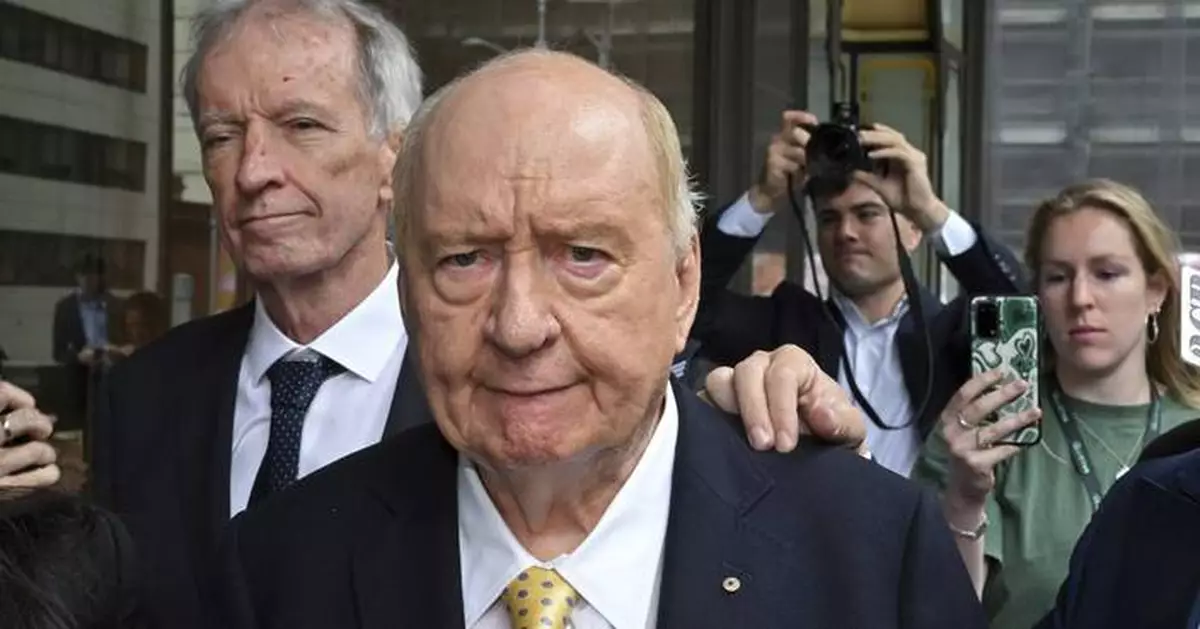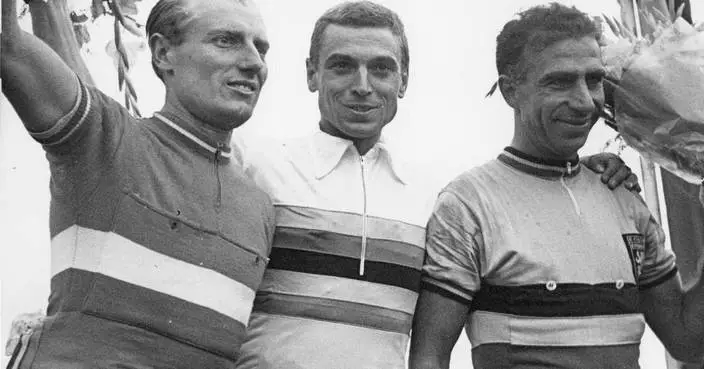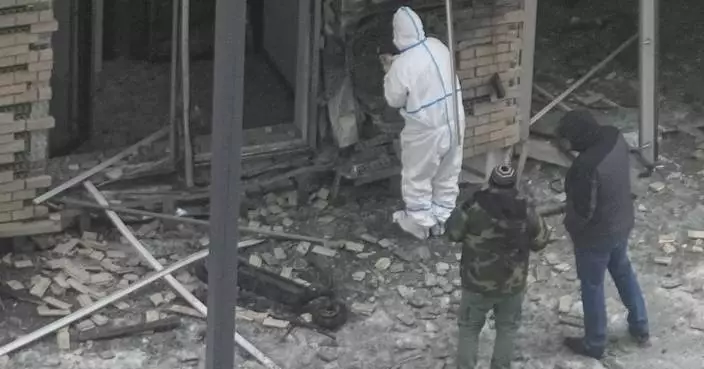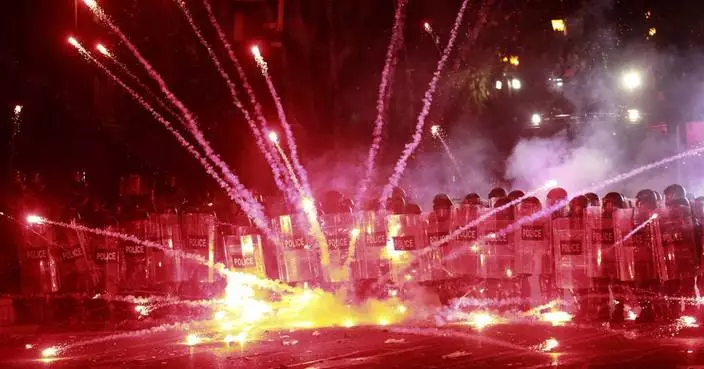SYDNEY (AP) — Retired Sydney radio broadcaster and former Australian national rugby coach Alan Jones denied all allegations after he appeared in court on Wednesday charged with multiple sex crimes against 10 males over two decades.
The 83-year-old made his first court appearance in Sydney’s Downing Center Local Court following his arrest last month.
Jones was not asked to enter pleas to the 34 charges of aggravated indecent assault, indecent assault, sexually touching without consent and common assault. But he told media outside the court he would fight all charges in a jury trial.
“I am certainly not guilty and I’ll be presenting my account to a jury,” Jones said. “These allegations are all either baseless or they distort the truth.”
“I have never indecently assaulted these people. I am emphatic that I’ll be defending every charge,” he added.
Two more alleged victims have come forward since police charged Jones on Nov. 18 with 24 offenses relating to eight complainants aged as young as 17.
Police alleged the offenses were committed from 2001 until 2019.
Jones hosted a popular Sydney morning radio show from 2002 until he retired in 2020. He was regarded as one of the most powerful people in Australian media.
He was also a successful coach of the Australian national rugby team, the Wallabies, for four years from early 1984. The team won 86 of their 102 matches under his leadership.
Jones was also influential in conservative politics and was a speechwriter for Prime Minister Malcolm Fraser. Fraser was in power from 1975 until 1983. Fraser died in 2015.
On Wednesday, defense lawyer Bryan Wrench told Judge Michael Allen that Jones would welcome a jury trial in the New South Wales state District Court to clear his name.
“There have been many … untruths published by the media and the police in this matter,” Wrench said.
Jones has been free on bail since his arrest. He will not be required to appear in court for a brief administrative hearing on March 11 next year.
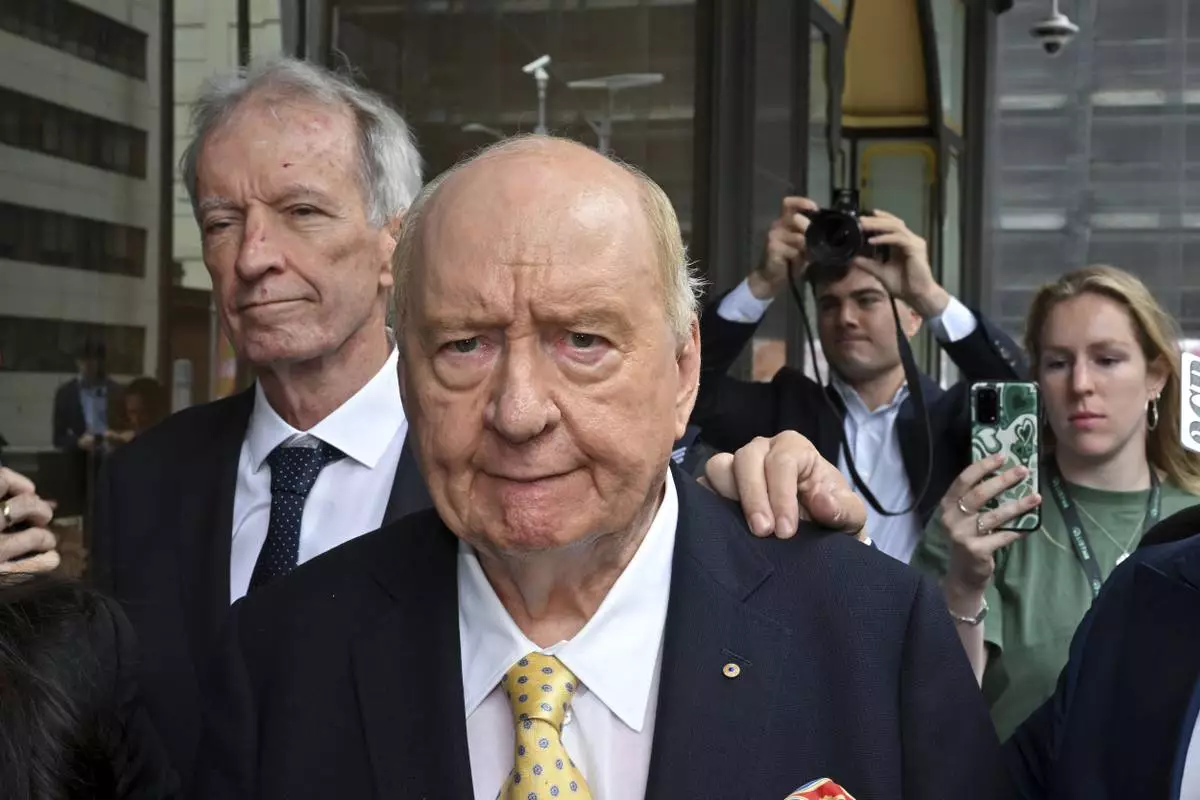
Former radio broadcaster Alan Jones leaves the Downing Centre Local Court in Sydney, Wednesday, Dec. 18, 2024. (Mick Tsikas/AAP Image via AP)
The killing of a senior Russian general in a bombing outside his apartment building in Moscow was the boldest assassination yet of a top military officer and again brought the war in Ukraine to the streets of the capital.
Some things to know about the attack and who is suspected of being behind it:
Lt. Gen. Igor Kirillov was killed Tuesday morning by a bomb hidden on an electric scooter parked near the entrance of his apartment block in southeastern Moscow as he left for his office. Kirillov’s assistant also died in the attack.
The bomb was triggered remotely, according to Russia’s Federal Security Service, or FSB. The explosion was caught on video from a camera mounted inside a car, showing the men walking out of the building and the fiery blast.
Kirillov, 54, was the chief of Russia's Radiation, Biological and Chemical Protection Forces. These special troops are tasked with protecting the military from the enemy’s use of nuclear, chemical or biological weapons and ensuring operations in a contaminated environment.
He was under sanctions from several countries, including the U.K. and Canada, for his actions in Moscow’s war in Ukraine. On Monday, Ukraine’s Security Service, or SBU, opened a criminal investigation against him, accusing Kirillov of directing the use of banned chemical weapons.
Russia has denied using any chemical weapons in Ukraine and has accused Kyiv of using them.
Kirillov, who took his post in 2017, was one of the highest profile figures to level those accusations. He held numerous briefings to accuse the Ukrainian military of using toxic agents and planning to launch attacks with radioactive substances — claims Kyiv and its Western allies rejected as propaganda.
His assistant, Ilya Polikarpov, was also killed in the attack.
An SBU official said Tuesday that the agency was behind the attack. The official, who spoke on condition of anonymity because they were not authorized to release the information, described Kirillov as a “war criminal and an entirely legitimate target.”
The SBU official provided the video of the bombing.
The FSB said Wednesday it detained a suspect, described as a citizen of the Central Asian nation of Uzbekistan who was born in 1995. The Tass and RIA-Novosti news agencies identified him as Akhmad Kurbanov.
According to the FSB, the suspect said he was recruited by Ukrainian special services. The Associated Press could not confirm the conditions under which the suspect made the statement to the security services.
The FSB said the suspect said he had been promised $100,000 and resettlement to a European Union country in exchange for killing Kirillov.
The agency said that acting on instructions from Ukraine, the suspect traveled to Moscow, where he obtained a homemade bomb, placed it on an e-scooter and parked it at the entrance to Kirillov's apartment building.
The suspect rented a car to monitor the location and set up a camera that livestreamed the scene to his handlers in the Ukrainian city of Dnipro, detonating the bomb when Kirillov left the building, the FSB said.
The suspect faces a sentence of up to life imprisonment, the FSB said.
Russian media reports said the FSB tracked the suspect by studying video from surveillance cameras and cellphone calls.
The FSB has not said how the suspect was recruited. He was detained in a village in the Moscow region, Interior Ministry official Irina Volk told Tass.
It is not known where he is being held or when he will appear in court. That is expected in the coming days, to hear the terms of his pre-trial detention. Under Russian law, a person may only be remanded in custody for 48 hours before a court order is made.
Russian officials have described the bombing as a “terrorist act.”
The Kremlin said Wednesday it was “obvious” that Ukraine was behind Kirillov’s killing, with spokesman Dmitry Peskov saying Kyiv “does not shy away from terrorist methods.”
While President Vladimir Putin has not publicly spoken about the attack, Peskov said he expressed his condolences on Kirillov's death.
Dmitry Medvedev, deputy head of Russia’s Security Council, described the attack as an attempt by Kyiv to distract public attention from its military failures and vowed that its “senior military-political leadership will face inevitable retribution.”
Vyacheslav Volodin, speaker of the lower house of parliament, called Kirillov “a professional military man, an intellectual, a Russian patriot.”
He “did a lot to increase the effectiveness of the radiation, chemical and biological defense forces, to ensure the security and sovereignty of our country,” Volodin said. —-
Illia Novikov in Kyiv, Ukraine, contributed.
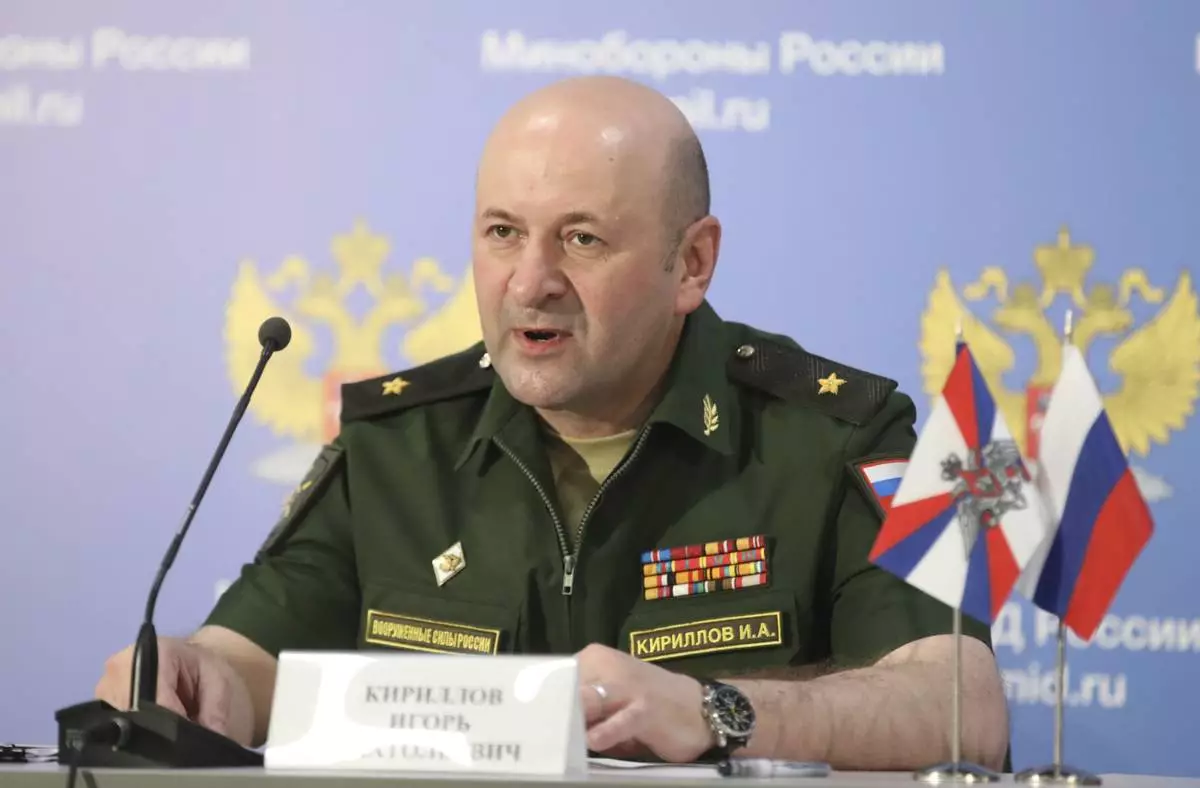
FILE - Maj. Gen. Igor Kirillov, the chief of the Russian military's radiation, chemical and biological protection unit, attends a briefing in Kubinka Patriot park, outside Moscow, Russia, on June 22, 2018. (AP Photo, File)
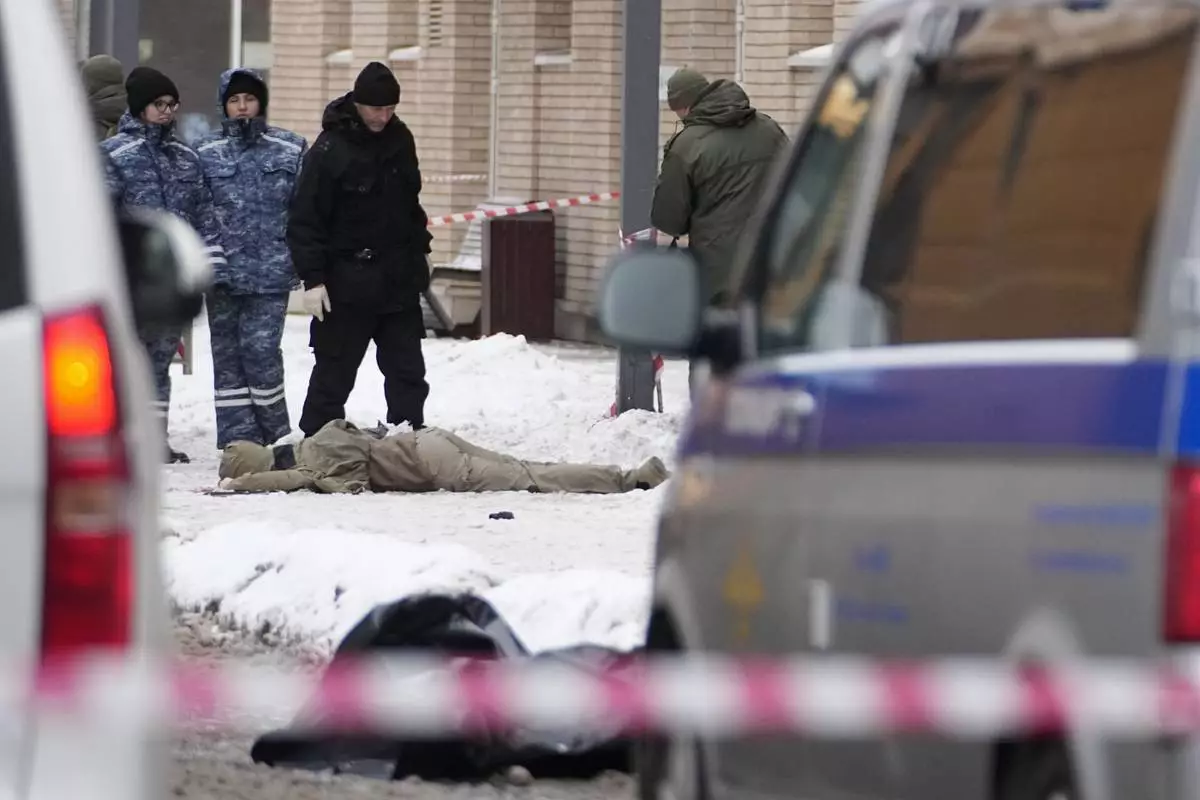
Investigators work at the place where Lt. General Igor Kirillov, the head of Russia's Nuclear, Biological, and Chemical Defence Forces and his assistant, seen at lower center, were killed by an explosive device planted close to a residential apartment's block in Moscow, Russia, Tuesday, Dec. 17, 2024. (AP Photo)
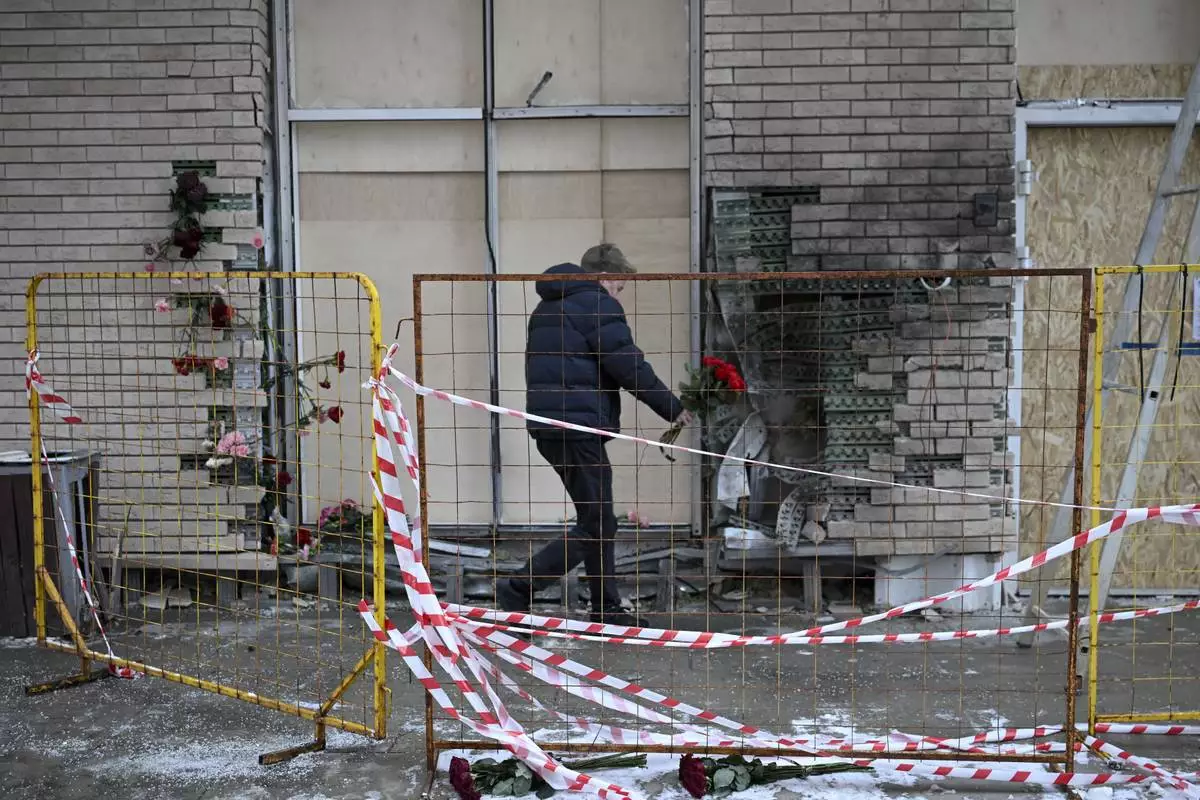
A man lays flowers on Wednesday, Dec. 18, 2024, at the apartment block in Moscow, Russia, where a bomb killed Lt. Gen. Igor Kirillov, the head of Russia's Radiation, Biological and Chemical Defense Forces, and his assistant Ilya Polikarpov. (AP Photo/Dmitry Serebryakov)
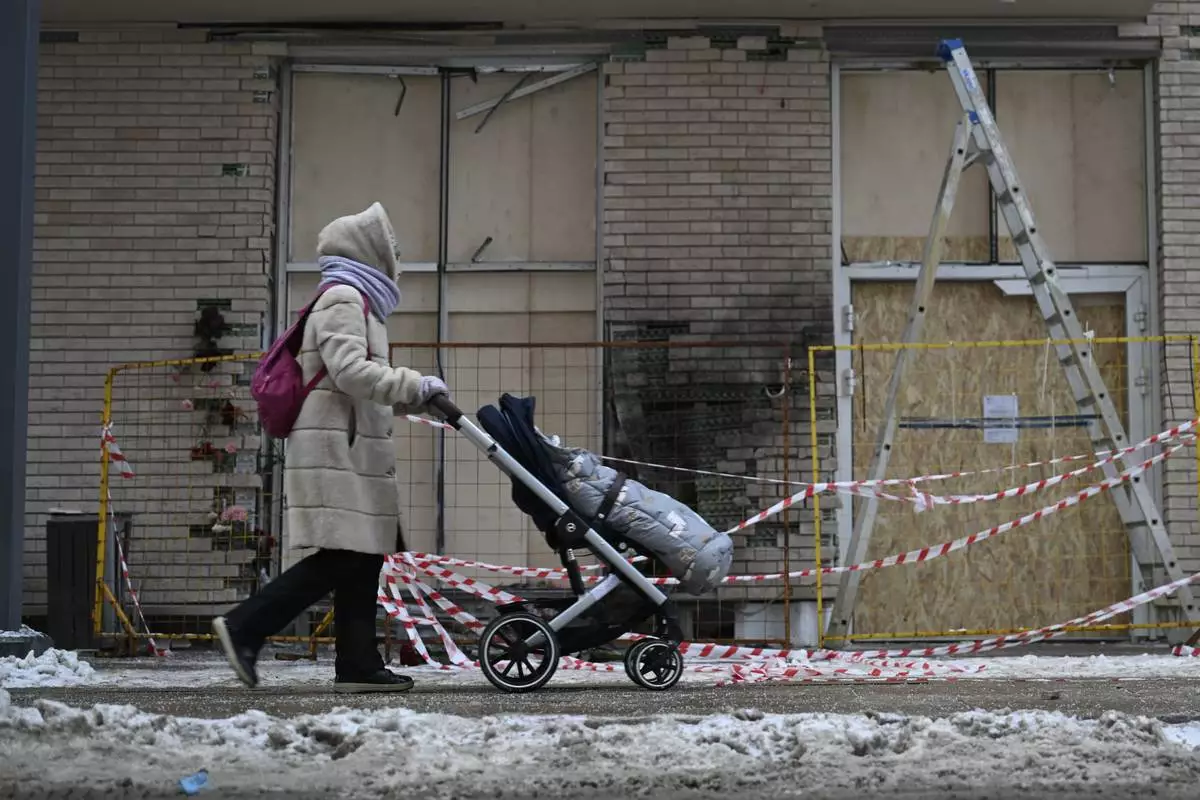
A person walks past an apartment block in Moscow, Russia, Wednesday, Dec. 18, 2024, where a bomb killed Lt. Gen. Igor Kirillov, head of Russia's Radiation, Biological and Chemical Defense Forces and his assistant, Ilya Polikarpov. (AP Photo/Dmitry Serebryakov)
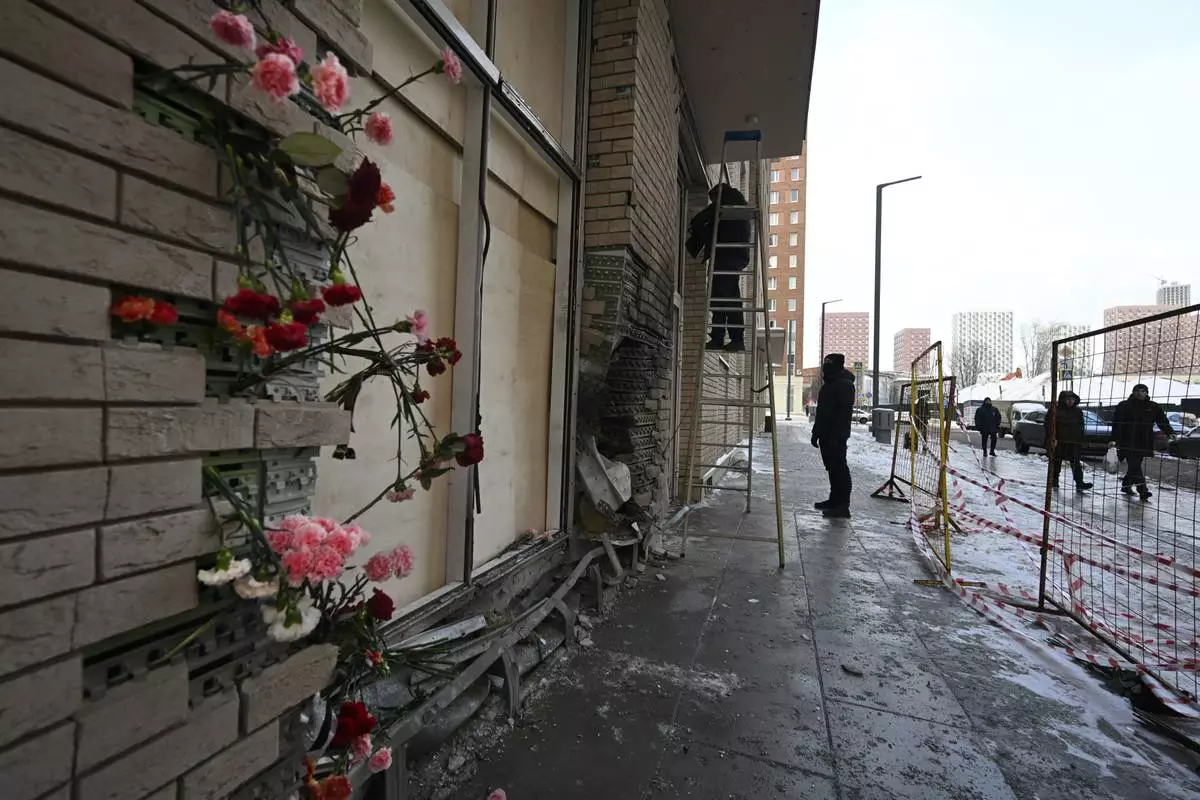
Flowers are attached to the facade of an apartment block in Moscow, Russia, on Wednesday, Dec. 18, 2024, where a bomb killed Lt. Gen. Igor Kirillov, the head of Russia's Radiation, Biological, and Chemical Defense Forces, and his assistant, Ilya Polikarpov. (AP Photo/Dmitry Serebryakov)



